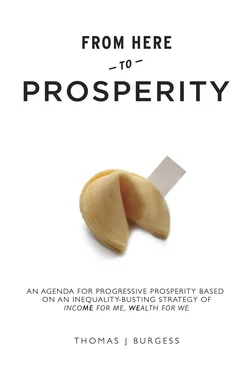One of the demands of Britain’s mid-19th century Chartist movement was that Members of Parliament should be paid an annual salary of £500, so that any adult male who was qualified to stand and was elected, could afford to serve without needing to be independently wealthy. Today, MPs are a mix of committed people who have given up their jobs, others who combine being a paid representative with another career (often the law or multiple company directorships) and career politicians whose entire life and income revolve around Westminster. Their basic salary is £67,000 a year but they also receive expenses to cover the costs of running an office, employing staff, accommodation in London and their constituency, travel between the two and sending out letters. They receive a pension when they retire and a one-off payment if they lose their seat. Small parties that are not in government are given a helping hand in the form of ‘short money’ (in the House of Commons) and ‘Cranborne money’ (in the Lords). All of this is designed to ‘keep them honest’.
When these arrangements are seen to be abused there is a scandal. In a case that caused outrage and amusement in equal measure in 2009, Tory MP Sir Peter Viggers was forced to retire when The Daily Telegraph revealed that he had claimed £30,000 for gardening, including £1645 for a floating duck house. MPs have to sign a register of interests but they can quite legitimately take on outside work. In 2012 the Daily Mail calculated that some were earning 13 times their public salary from second jobs, including a former environment minister paid £140,000 by green companies for a 51-hour month. MPs are often accused of being remote and disconnected from ‘real life’ and, if earning ability alone could make this true, many probably are. Some are also remote from Parliament because they are actually working elsewhere.
Like their US counterparts, British MPs are subject to lobbying by interest groups, big business, party backers and powerful individuals. In 2012, the multi-millionaire Conservative co-treasurer Peter Cruddas resigned after being filmed asking a donor for £250,000 for his party, to fix up a meeting with the Prime Minister. In 2010 the Sunday Times and Channel 4 TV uncovered the influence-peddling of three former Labour ministers including Stephen Byers who was secretly filmed saying that he was like a ‘cab for hire’ at up to £5000 a day. While in some countries these ‘extramural’ activities would be considered a perk of the job and the amounts involved piddling, what it demonstrates is a mindset contaminated by greed and contempt for voters. The two go hand-in-hand. No wonder we are loosing trust in politicians.
It is fair to say that while the UK and America share common problems in this area there is a difference in scale. One of the most notorious lobbying scandals in the USA blew up in 2006. A group of lobbyists led by one Jack Abramoff were accused not only of giving gifts to politicians and making enormous campaign donations in return for votes, but also of ripping off their clients, mainly Native American casino interests, to the tune of $85 million. Significantly, Abramoff was jailed for conspiracy, fraud and tax evasion. Somewhere along the way the idea that tens of millions of dollars were involved in exercising influence over legislation, seems to have been overlooked. Perhaps one reason is that politics has always been an expensive game. Somebody had to pay for all those trains that candidates took to using for whistle-stop campaigns, starting with William Henry Harrison in 1836.
From George Washington onwards, barely a handful of US presidents, such as Abraham Lincoln and Harry S. Truman, have been non-millionaires, or the equivalent, either on assuming office or in later life, the richest of all being John F. Kennedy. In either country, being an exminister or former congressman or woman will not harm your chances of a comfortable retirement. But if it helps to be rich to be in power, in a plutocracy the super-rich do not have to be in government to shape laws or alter policy. The super-rich can deal at arm’s length through lobbyists or at closer range, around the dining table, aboard the super-yacht or each winter in the Swiss Alps at the World Economic Forum, an annual event hosted by a foundation whose 1000 members are mainly global corporations with yearly revenues exceeding $5 billion.
I was impressed by the American constitution when I first studied it at school. I liked its clear and ordered approach compared to the British mish-mash of laws collected over the centuries. I admired the consensus politics in America. In the British system the Government and opposition benches of the Houses of Parliament are the length of two swords apart, just in case debates get a bit rambunctious. Both houses are plagued by a confrontational system, tempered by quaint rules that, for example, forbid members from calling one another liars, but will allow them to say they have been ‘economical with the actualité’ (French scholars look away now). I remember talking to a Conservative MP back in the early 1990s who saw his main role as keeping the ‘socialists’ out; foolishly, I had assumed it was to serve his constituents, whatever their beliefs.
If my picture of US politics was ever entirely true, things have certainly changed: the left and the right in America are now so at loggerheads that the Government has been paralysed repeatedly by budget disputes and constant blocking of proposals. This meant that significant pieces of legislation like the Affordable Care Act were watered down in order to please all factions as well as the men with the money.
Even before Obamacare (which still leaves many without healthcare), efforts to improve healthcare provision has been going on for a long time but get bogged down in trying to make health insurance more affordable, rather then making healthcare available to all. This is a classic case of the government not working for us but working for those that provide health insurance and medical and pharmaceutical services. A similar plan for healthcare was proposed by Harry S. Truman six decades ago and has been attacked ever since as ‘socialist’. The World Health Organisation calculates that the US has the highest health spending in the world, equivalent to 17.9% of its Gross Domestic Product (GDP), or $8362 per person (more on this later). US politicians, the health care ‘industry’ and pharmaceuticals companies however, are determined that Americans would rather ‘go private’ and spend twice as much per head on healthcare than submit to the semi-Communist tyranny of a system like the UK’s state-funded National Health Service, which, horror of horrors, is free at the point of delivery. The British government that brought in the NHS almost 70 years ago did so through sheer weight of numbers after a landslide victory in which wartime coalition leader – and aristocrat – Winston Churchill was thrown out of Downing Street. The British were sick and tired both of the ‘Giant Evils’ identified by the Liberal William Beveridge – want, disease, ignorance, squalor and idleness – and the country’s class system. The NHS is the holy cow of British politics; a great example of the government working for us, support for it is the equivalent of motherhood and apple pie, despite the fact that its introduction was bitterly resisted and subsequent governments have tried to ‘marketise’ it, ready to hand it over to big business.
In Britain there is not much scope for the government working for us in the short term even though the ruling Conservative Party has moved from serving (or self-serving) the land-owning aristocracy to the centre ground. After a General Election with no clear winners in 2010, the Conservatives formed a joint administration with the minority Liberal Democrats (which was formed in 1988 by the merger of the Liberal Party and Social Democrats). At times the coalition had a bumpy ride, even as the junior partner in the coalition, the Lib Dems, managed to get some of their policies enacted and put a brake on what they would see as the worst excesses of the Conservatives whose instinct is to cut taxes for the rich and slash benefits for the poor (which they still did). The coalition demonstrated that is was possible to have an alternative to two-party confrontational politics of the type that has stymied progress on either side of the Atlantic. However, due to a clear lack of direction, the coalition did not achieve the much needed, bold reforms; it was really just business as usual, with the same structural problems still there and unsolved.
Читать дальше












